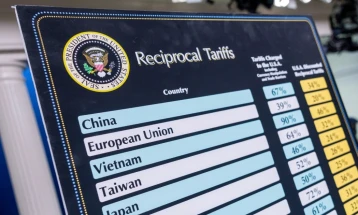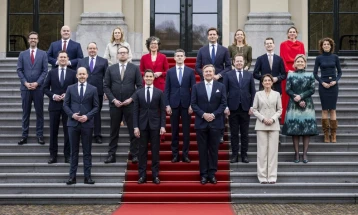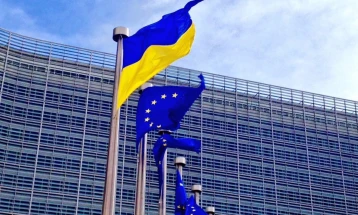Mali, Burkina Faso and Niger establish a new Sahel confederation
- Mali, Burkina Faso and Niger have founded a new confederation aimed at strengthening a joint defence pact launched last year, the Alliance of Sahel States (AES), according to an announcement at the end of a summit in Niamey on Saturday.
- Post By Silvana Kocovska
- 11:39, 7 July, 2024

Niamey, 7 July 2024 (dpa/MIA) - Mali, Burkina Faso and Niger have founded a new confederation aimed at strengthening a joint defence pact launched last year, the Alliance of Sahel States (AES), according to an announcement at the end of a summit in Niamey on Saturday.
The group of states, which are all ruled by military juntas, plans to coordinate more closely on foreign and security policy, regulate the free movement of people and goods and establish a joint investment bank, according to the statement.
Mali's leader Colonel Assimi Goïta, Niger's leader General Abdourahamane Tchiani and Burkina Faso's leader Captain Ibrahim Traoré head transitional governments following military coups and have postponed elections for several years or have not announced plans to hold any at all.
All three initially launched the Alliance of Sahel States in autumn as a defence alliance and said they would withdraw from the Economic Community of West African States (ECOWAS) in January.
They accuse ECOWAS, which criticized the coups and imposed sanctions, of being influenced by the interests of France, a former colonial power.
Despite years of international anti-terrorism missions, all three countries are grappling with Islamist terrorist groups.
The three states are also pivoting towards Russia since the coups that took place between 2020 and 2023, and have distanced themselves from former foreign partners. On Saturday, Berlin said negotiations had failed over the continued operation of a German army base in Niamey.
An ECOWAS summit on Sunday aims to discuss how to deal with the three countries' withdrawal, due to take effect in January.
The 15 ECOWAS states are closely linked economically, politically and socially. Most West African francophone states are also part of a common monetary and economic union.
Photo: EPA







